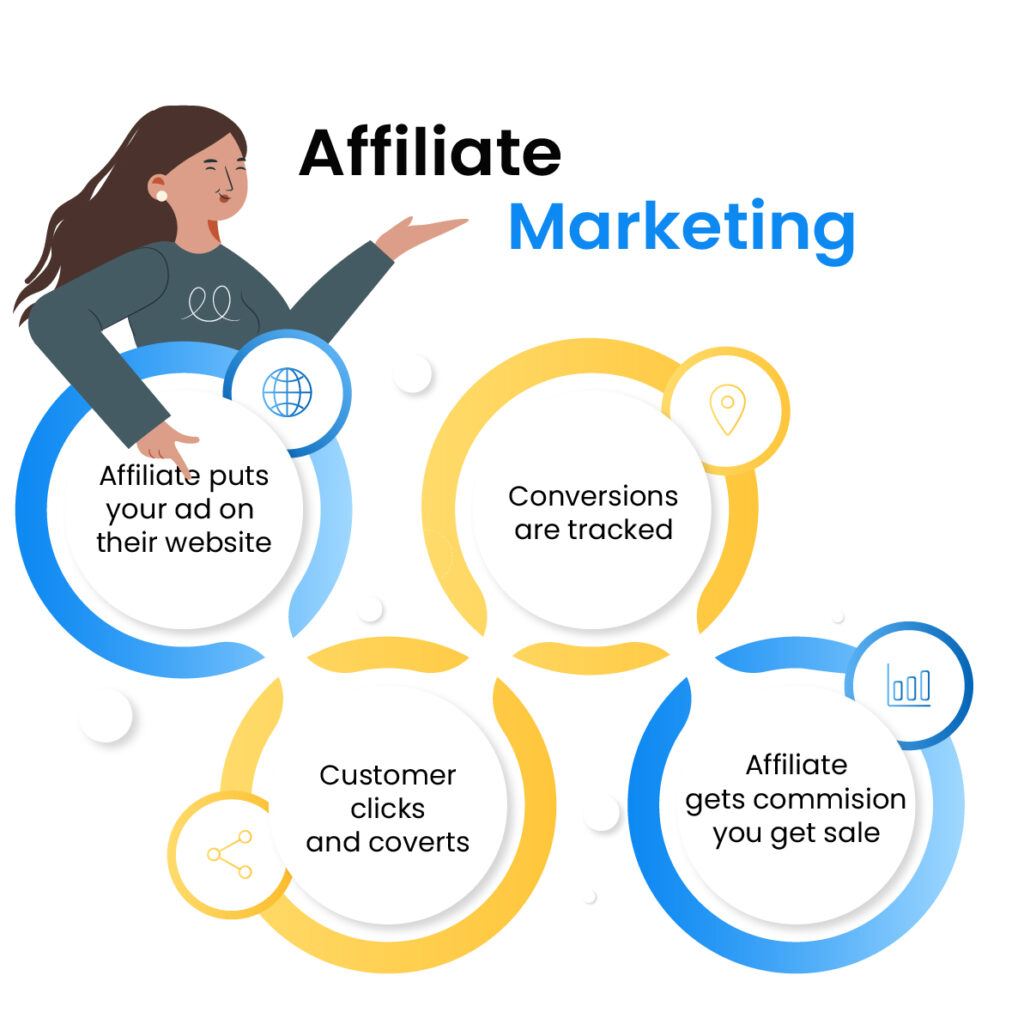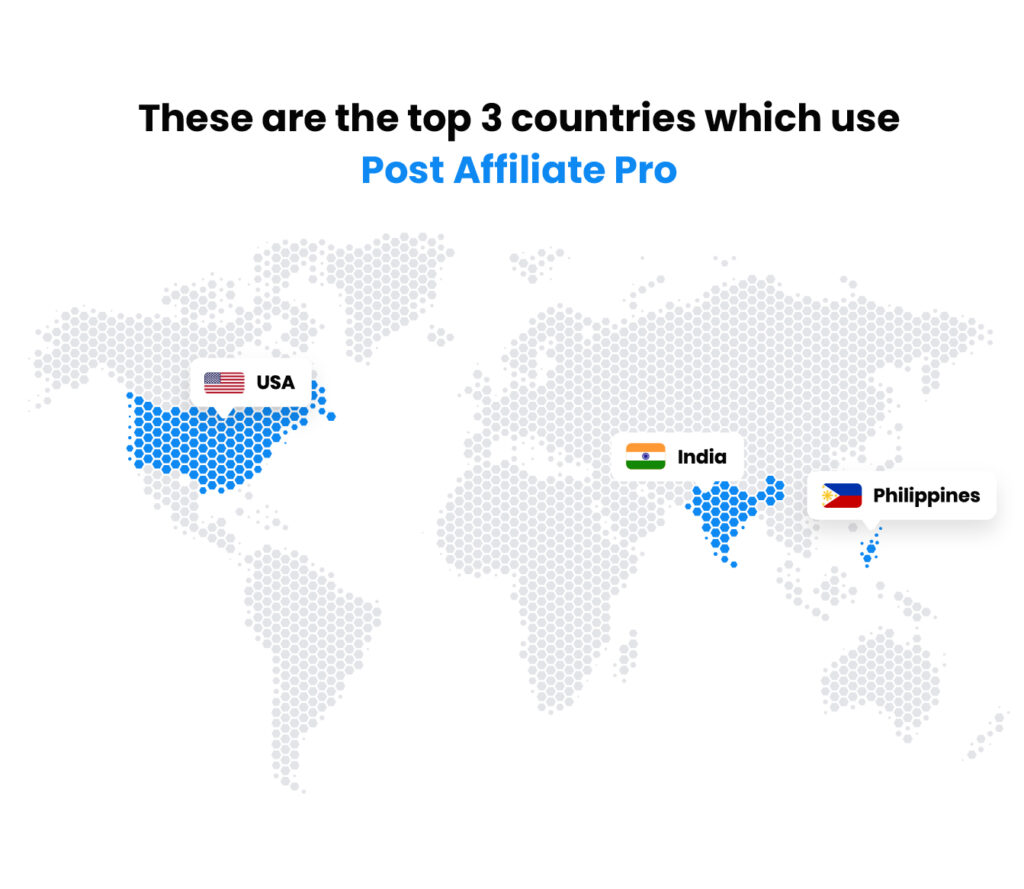Are you hoping to earn a passive income by running an affiliate marketing campaign? Read on to find out what things you should know before jumping onto the affiliate marketing bandwagon.
In theory, affiliate marketing is everybody’s dream. Tired of waking up at 6 AM just to arrive at your office an hour later, and spend time resolving a never-ending pile of paperwork? As an affiliate marketer, you are your own boss. You can make money from anywhere, and at any time. You can simply promote products or services on your blog or social media, and get paid every time someone purchases them. There’s no limit to how much you can earn either – be creative, and the money will keep coming.
Minimum effort, maximum revenue – it’s the dream job, right? Hold your horses. These days, it takes far more effort than just signing up for the first affiliate program you see and placing an affiliate link on your blog or website. Getting people to buy products is much harder now than it used to be. Seeing people who claim they earn a multiple digit income from their blog might make it look easy. But if you jump straight into creating an affiliate marketing campaign without proper preparation, you’ll be disappointed with your results.
In this article, we’ll go through the basics of affiliate marketing and mention five crucial things that can make or break your affiliate marketing campaign. Let’s dive in!
What is affiliate marketing?
According to Statista, spending on affiliate marketing is forecasted to increase from $5.4 billion in 2017 to $8.2 billion by 2022. 81% of marketers and 84% of publishers run affiliate marketing campaigns regularly in hopes of grabbing the consumer’s attention. But how does it work?
An affiliate is a person hired to promote a product, which is made by a company or another person. The affiliate promotes the product by sharing information about it on different channels such as Instagram, Facebook, YouTube, or a dedicated website or blog. Whenever someone buys the product with the affiliate’s link, the affiliate earns a proportion of the profit, known as a commission.

Here’s how the process works:
- You create unique content that promotes a product and provides an affiliate link for your audience with which they can purchase the product (usually at a discounted price).
- Consumers that are interested in the offer click on the affiliate link.
- Those who click are redirected to your affiliate partner’s website.
- If they make a purchase through your link, the store records the sale as being directed from your affiliate link.
- After the transaction is confirmed, the vendor gives you a commission for the sale.
But affiliate marketing isn’t only about bringing in customers and selling a product. It’s also about educating your audience and positioning yourself as an expert by offering valuable content for your target audience (affiliate links are mentioned as if they were an afterthought).
Affiliate marketing, as such, is performance-based. There’s no limit to how many products you can promote or how much you can earn. After a while, you can have an affiliate marketing campaign running in the background and providing you with additional passive income, as long as you convince enough people to consume your content. However, there’s also a risk of failing to produce the desired results. To prevent this scenario, we have highlighted five things you should research before starting your first affiliate marketing campaign.
1. Your target audience
Before you start promoting a product, you need to find out what type of buyers you should focus on targeting. You could spend hours promoting your product, but it won’t be worthwhile if you are targeting the wrong audience. Aiming for a “general audience”, i.e. “whoever will be interested in my product”, simply won’t result in sky-high sales.
Think about it – if you are promoting a tool for small, local businesses then does reaching out to enterprises make sense? What about targeting Android users to try and sell an iOS app? No, right? You need to know precisely who is most likely to be interested in your product and where you can find them.

Fortunately, you don’t need to create buyer personas from scratch. When you join an affiliate partner program, you can reach out to the vendor company with questions about their target audience. If they can provide you with a detailed description of their ideal customer, all that’s left for you to do is to create an affiliate strategy based on that information.
2. The product you want to promote
Some people think it’s not the slightest problem to pretend they have used a product or service when really they haven’t – who will find out? But if you don’t have experience using the product you are promoting, you won’t know how (or even if!) the product actually works! This can be a very costly mistake, especially when people can verify the information you’re putting out, and share their frustration on social media if the information doesn’t add up.
If you know how a product works inside-out, you can point out which features are the best and which ones need more work. This will make your content more objective, and give off an expert vibe rather than a pushy sales pitch.
3. High-quality content to build up your reputation
You’ve probably heard the phrase “content is king.” And so it is — wherever you look, content comes first. Whether you have a blog, upload videos to YouTube, or are active on social media – it’s all about content. Of course, you could create a series of posts and updates using social media tools or write blogs about how fantastic a given product is. But with tons of people already doing that, your content is likely to be buried amongst other similar content.
So let’s think differently. Why would somebody want to read about a specific topic or use a given product? How can the product that you have help your audience with solving a particular problem or pain point? What could the audience learn from your blog article or video?

If you can answer to your audience’s needs by offering them high-quality content, you are already one step ahead. You can build up a reputation as an expert on a given topic, which will make others more likely to listen to your recommendations and try out the products you’re suggesting.
But to write a great review or article, you need to know the product inside-out. People are looking for real-life experiences, not a sales pitch.
4. Affiliate metrics and ways to track them
You might think it’s good enough to know you’re making sales. But if you want to grow your sales more, you need access to data. From what channel are you getting the most sales? What keywords engage your target audience most? What topics catch your readers’ attention? The answers to these questions are in your data. The more data you have, the more you’ll know about how your campaign is performing. This also gives you a better chance to adjust your next campaigns and improve your conversion rates.
But once you do start looking at the available data, it might be overwhelming. What does it all mean, and which metrics are important for you? Think carefully about what metrics you need to track your progress and determine a campaign’s success. Some of the metrics that might be helpful for you are:
- The number of clicks on your affiliate link
- The conversion rate
- eEPC: Effective Earnings Per Click
- Traffic quality
With a carefully selected set of metrics, you will have all the necessary data to see how you can improve your strategy. What topics give you the best response? Which audience segment gives you the highest conversion rate? Are there any issues that stop your readers from converting? For example, is there a big difference between the number of clicks you get and the number of sales you make? If yes, this might indicate that there’s an obstacle that prevents your customers from purchasing your products.
5. Good affiliate marketing software
Technically, you can be tracking all clicks and sales manually. The same goes for researching keywords or building a landing page from scratch. You might also be entering all the data you obtain into a spreadsheet. But do you have enough time to do all of this? Not really. As such, the best solution is to look for the right affiliate marketing software.
Consider it an extra pair of eyes that will watch over your affiliate content’s performance, and a pair of hands that will diligently note all clicks, sales, and responses to your content. The right software can also alert you whenever something concerning appears in your data.

Affiliate marketing tools will also help you set up unique affiliate links and retarget people who have previously clicked on them. You will also be able to spot which affiliate channels or practices give you the best (and worst) results. Most importantly, this type of software will save you tons of time and energy.
Conclusion
Affiliate marketing can either be a dream come true, or a massive disappointment. The results depend on your preparation, creativity, and time you put into it. You also need a good deal of patience – Rome wasn’t built in a day, and you won’t see the results of your affiliate marketing efforts in the next day or week. But with our tips, you are already one step closer to nailing your affiliate marketing campaign strategy!
Post Affiliate Pro is also here to give you a helping hand – when you are preparing top-notch content for your audience, Post Affiliate Pro will take care of analyzing your traffic and giving you all the data you need to optimize and improve.
Share this article
How To Find Affiliates to Sell Your Products
Discover over 10 successful strategies for finding high-quality affiliates in 2024 to boost your product sales. Learn to leverage influencers, join affiliate networks, and enhance your reach through SEO and social media. Maximize revenue with transparency and ongoing monitoring in your affiliate marketing program.
Affiliate networks vs. affiliate tracking software
Explore the key differences between affiliate networks and affiliate tracking software to streamline your affiliate marketing operations. Discover which solution offers the best automation, control, and efficiency for your program. Make an informed choice to optimize your revenue strategy.
Discover the essential role of affiliate software in managing and optimizing your affiliate marketing programs. Learn how it streamlines link tracking, referral management, and commission payments, ensuring data security and fraud prevention. Unlock growth opportunities with efficient program management and boost your business's reach and ROI. Visit now to explore the benefits of investing in affiliate software!
How to choose affiliate software
Discover how to choose the best affiliate software with Post Affiliate Pro's comprehensive guide. Learn about essential features like tracking, fraud prevention, and customizable commission types, all designed to optimize your affiliate programs. Ensure seamless operations with easy setup, mobile access, and outstanding support to save time and build trust with affiliates. Visit our guide to make informed decisions and boost your affiliate marketing success!
9 affiliate marketing tools that’ll help you run your affiliate program
Discover 9 essential tools to supercharge your affiliate marketing program! From visual content creation with Visme to comprehensive management with Post Affiliate Pro and audience insights via Smartlook, these tools will boost your sales and refine your strategy. Dive in to maximize your affiliate success!
Top booming affiliate niches of 2025
Discover the top booming affiliate niches of 2023 and maximize your revenue with Post Affiliate Pro! From health and veganism to gaming and luxury goods, explore the most lucrative industries to align with your brand and audience. Unleash the potential of affiliate marketing by choosing the right niche today!












